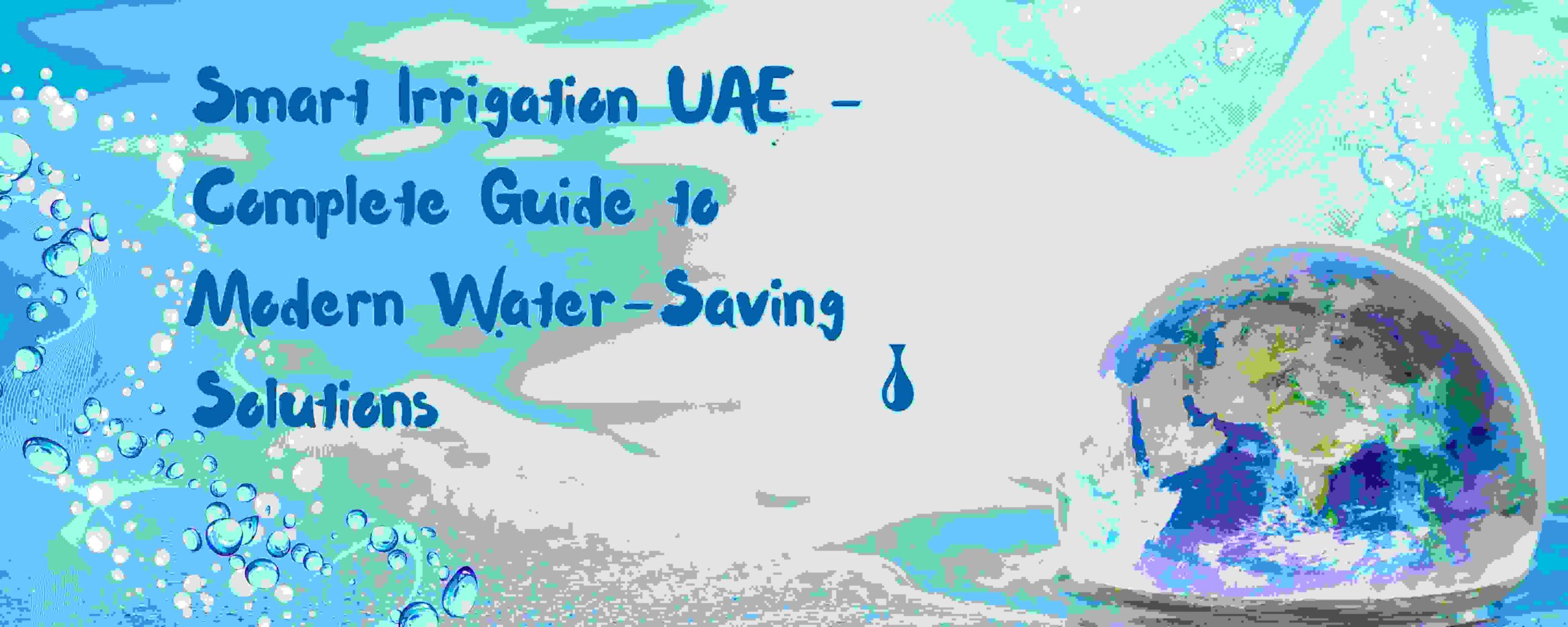Smart Irrigation UAE – Complete Guide to Modern Water-Saving Solutions
Water conservation is a top priority in the United Arab Emirates due to its arid climate and limited freshwater resources. With increasing demand for landscaping in homes, parks, golf courses, commercial spaces, and agricultural lands, smart irrigation systems have become essential. These systems use advanced technologies to optimise water usage, improve plant health, and reduce costs. This article offers a comprehensive overview of smart irrigation in the UAE, including its benefits, types, applications, installation, and top providers.
What is Smart Irrigation?
Smart irrigation is a technology-based watering system that uses sensors, controllers, and automation to provide the right amount of water at the right time. It adjusts watering schedules based on weather data, soil moisture levels, and plant needs, avoiding overwatering or underwatering.
Why Smart Irrigation is Important in the UAE
The UAE has limited groundwater reserves and relies heavily on desalination. Traditional irrigation methods often waste water. Smart irrigation offers an eco-friendly and efficient alternative that supports the country’s sustainability goals and UAE Water Security Strategy 2036.
Key Reasons for Adoption:
Harsh desert climate with high evaporation rates
High landscaping demand in urban and suburban areas
Rising water costs and conservation regulations
Government support for green infrastructure
Types of Smart Irrigation Systems
1. Weather-Based (Evapotranspiration) Controllers
Adjust watering schedules based on local weather conditions
Use internet-connected weather data or local sensors
Ideal for residential gardens, parks, and commercial landscapes
2. Soil Moisture Sensor-Based Systems
Measure real-time moisture in the soil
Trigger irrigation only when soil becomes dry
Ideal for agriculture, nurseries, and golf courses
3. Drip Irrigation with Smart Controls
Delivers water directly to the root zone
Reduces evaporation and runoff
Combined with timers, sensors, and zone control valves
4. App-Controlled Irrigation
Allows users to manage irrigation via smartphone
Can schedule, monitor, and modify watering remotely
Great for villa owners and facility managers
Applications of Smart Irrigation in UAE
1. Residential Gardens and Villas
Automated systems for lawns, flower beds, and trees
Saves time and water, especially for villa owners in Dubai and Abu Dhabi
2. Commercial Landscaping
Hotels, shopping malls, and office parks benefit from smart irrigation
Enhances visual appeal while maintaining cost efficiency
3. Public Parks and Green Spaces
Municipalities in cities like Abu Dhabi, Dubai, and Sharjah use centralized smart irrigation networks
4. Golf Courses and Resorts
Maintain lush greens without wasting water
Sensors provide precise watering based on soil conditions
5. Farms and Agriculture
Supports precision farming by delivering water and nutrients directly
Boosts crop yield while conserving resources
Benefits of Smart Irrigation Systems
Water Savings: Reduces water use by 30–50% compared to manual systems
Cost Reduction: Lower utility bills and maintenance expenses
Healthier Plants: Prevents overwatering and diseases caused by water stress
Automation: Minimal manual intervention needed
Remote Access: Control system from anywhere via smartphone or computer
Sustainability: Supports green building certifications (Estidama, LEED)
Features to Look for in a Smart Irrigation System
Wireless connectivity (Wi-Fi or GSM)
Integration with weather forecasts
Soil moisture sensors and flow meters
Zoning capability for different plant types
Rain sensors and freeze protection
Smartphone app or cloud-based dashboard
How to Install a Smart Irrigation System in the UAE
Site Assessment
Analyse landscape size, soil type, plant variety, and sunlight exposure
System Design
Determine number of zones, sensor placement, and piping layout
Equipment Selection
Choose controllers, valves, sensors, and emitters based on needs
Installation
Lay pipes, connect valves, install sensors, and configure controller
Programming
Set schedules based on plant requirements and climate data
Maintenance
Regularly inspect and clean filters, test sensors, and update software
Cost of Smart Irrigation in the UAE
| Application Size | Estimated Cost Range (AED) |
|---|---|
| Small villa garden | 2,000 – 5,000 |
| Medium residential lawn | 5,000 – 12,000 |
| Commercial property | 15,000 – 50,000+ |
| Agricultural land | Custom pricing (per acre) |
Note: Prices vary based on features, brand, and site complexity.
Top Smart Irrigation Brands Available in UAE
Hunter Industries
Rain Bird
Netafim
Toro
Orbit
Hydrawise
Rachio
Galcon
Claber
These brands are available through UAE distributors or irrigation system integrators.
Trusted Smart Irrigation Service Providers in the UAE
While there are many companies, here’s what to look for in a reliable provider:
Local installation and maintenance support
Certified technicians with landscaping experience
Ability to customise systems for villas, farms, or large properties
Strong portfolio and client references
Warranty and after-sales service
Government and Green Initiatives Supporting Smart Irrigation
Estidama Pearl Rating System in Abu Dhabi encourages efficient water use
Dubai Municipality’s Irrigation Department promotes water-saving methods
Ras Al Khaimah Energy Efficiency & Renewables Strategy 2040 supports green irrigation
Agricultural support programs by Ministry of Climate Change and Environment (MOCCAE)
Conclusion
Smart irrigation systems in the UAE are transforming the way water is managed in landscaping and agriculture. Whether you’re a homeowner looking to reduce water bills or a business managing large landscapes, investing in smart irrigation is both environmentally and economically beneficial. With a range of high-quality products and experienced providers available locally, it’s easier than ever to switch to a water-efficient future in the UAE.
For best results, choose a tailored system designed for your property, and make sure it’s installed and maintained by experienced professionals who understand the unique climate and needs of the UAE.
Read more:






